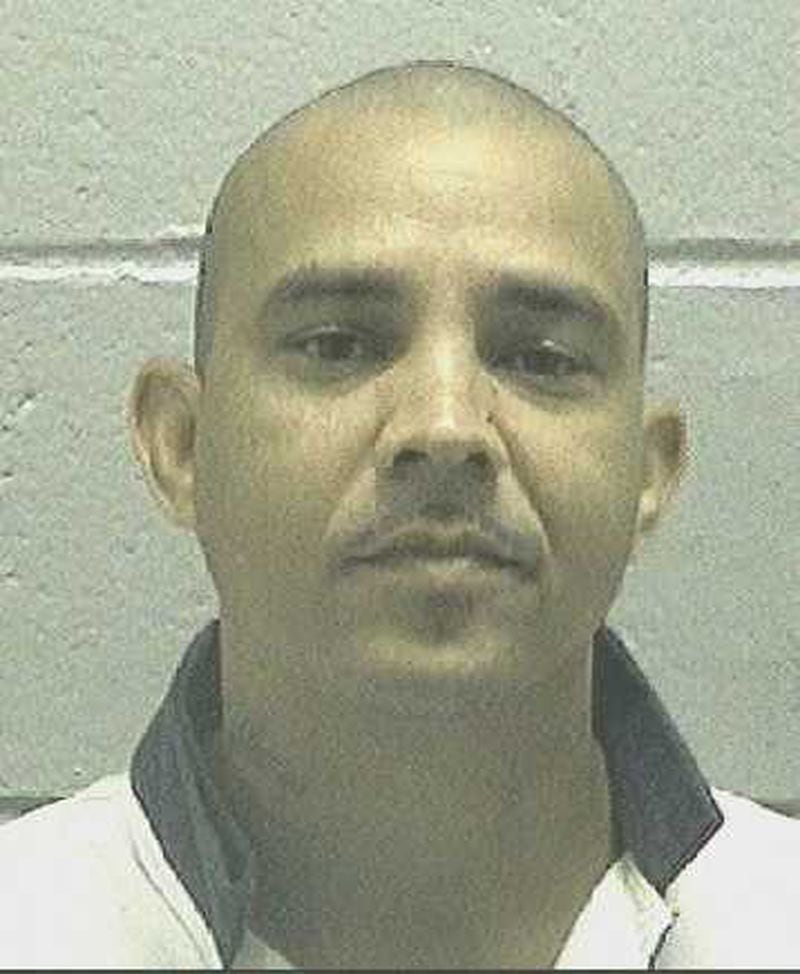The federal appeals court in Atlanta on Tuesday encountered an almost unheard of coincidence: a lawyer for the state Attorney General's Office and an attorney defending a death-row inmate agreed on an issue before the court.
For this reason, the 11th U.S. Circuit Court of Appeals did something that was almost equally unusual: It appointed another lawyer to argue against the position shared by the state attorney and the death-penalty lawyer.
The case involves the appeal of death-row inmate Marion Wilson. In 1996, Wilson, along with
Credit: Bill Rankin
Credit: Bill Rankin
co-defendant Robert Earl Butts, asked Donovan Parks for a ride outside a Wal-Mart in Milledgeville in 1996. After Parks, a prison guard, let them inside his car and drove away, Wilson and Butts ordered him to pull over. One of them then killed Parks with a shotgun blast to the head. Both Wilson and Butts sit on death row.
Wilson is one of a number of death-row inmates whose appeals are almost exhausted. Earlier this month, the U.S. Supreme Court declined to hear three appeals, nearly doubling the number of condemned inmates who are eligible to be put to death.
The issue before the 11th Circuit on Tuesday was the arcane question of what prior state court ruling the court should look to when deciding the merits of a condemned inmate's federal appeals.
Should the court look to the state Superior Court judge's lengthy order, which gives detailed reasons as to how certain findings and decisions were reached? Or should the court look only at the state Supreme Court's one-word decision -- "Denied" -- when it declined to hear an appeal of the Superior Court judge's ruling.
Brian Kammer, director of the Georgia Resource Center, and Senior Assistant Attorney General Sabrina Graham are often at loggerheads, fiercely litigating against one another as an execution nears. But on Thursday, Kammer, when first addressing the entire 11th Circuit, said, "The state Attorney General and I on this rare occasion agree."
Both lawyers said the 11th Circuit should "look through" the state Supreme Court's cursory denial to the state court judge's reasoned opinion.
This is an important distinction because federal courts can step in to correct a state court conviction when there is a finding the state court decision upholding that conviction misapplied clearly established U.S. Supreme court law or was based on an unreasonable determination of the facts.
In death cases, if the 11th Circuit only has to rely on the state Supreme Court's one-word decision declining to hear an appeal of the lower-court judge's opinion, then the federal appeals court can come up with its own reasons as to why the death sentence should continue to be upheld. The court could not offer such speculation, however, if it must look at the detailed ruling by the lower-court judge. Instead, the appeals court would only review the reasonableness and adequacy of the state court judge's ruling.
Credit: Bill Rankin
Credit: Bill Rankin
From the questions posed by the appeals court judges during the oral arguments, it became clear that Judge Bill Pryor, Alabama's former attorney general, wants the court to hold that the state Supreme Court's summary denial to hear the condemned inmate's appeal was a ruling decided on the merits. For that reason, Pryor said, the court does not have to look through it to the decision issued by the state Superior Court judge.
Pryor often nodded in agreement when the court's appointed lawyer, Chicago attorney Adam Mortara, argued that the state Supreme Court's summary denial was the ruling the appeals court need only look to.
Chief Judge Ed Carnes said the issue is a close call and did not indicate which way he was leaning. The argument was heard by all 11 of the court's judges.
Judges Charles Wilson, Jill Pryor and Adalberto Jordan disagreed with Mortara's position. And a number of judges appeared frustrated there was no clear answer.
At one point, Graham, the state attorney, seemed to sum up the mood in the crowded courtroom, "I think it is a very confusing issue."
About the Author









